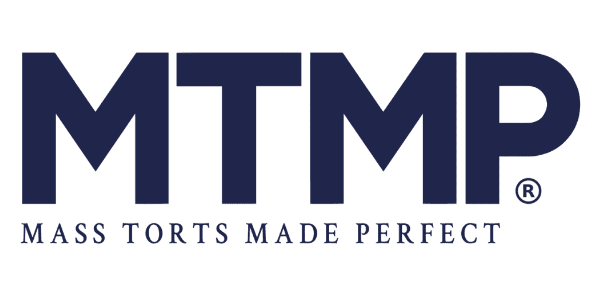Susan B. (0:00:06) – Hello, everyone. Welcome to another episode of the Leverage Report. Really excited to be joined today by Rick Meadow. Rick, I’ve known you for 20 years. I know that you’ve been practicing law for about 30 years, but I guess my relationship has been with you when you’ve been at the Lanier Law Firm. But tell us, I know you you’re wearing 2 hats now, so maybe share with with the industry about what are those 2 hats.
Rick M. (0:00:32) – Absolutely. And I’ve been practicing 40 years now. Oh. Yeah. I know. 40 year law school reunion this year. And I’m like, got to be kidding me. If I’ve known you 20 years, I’ve known you since you were 16.
Susan B. (0:00:43) – Oh, yes. Or even younger. But yes. Exactly.
Rick M. (0:00:47) – So yeah. So thank you, Susan. Thanks for having me again. Let me tell you exactly what I’m doing. I’m still with Mark Lanier and the Lanier law firm, more of a of counsel business development role. And I also Mark and I opened the Meadow Law Firm out in Phoenix, Arizona. I’m in Scottsdale. We opened an office here to take advantage of the new laws in Arizona, the ABS laws, alternative business structure. So I am wearing 2 hats. It’s really exciting what we’re doing out here in Arizona and welcome anybody to come join me.
Susan B. (0:01:11) – Yeah. That’s that’s really exciting. Well, I appreciate you being on again as a repeat guest. I know today we’re gonna be talking about the game addiction law suit. So before we kinda dive in, if you’ll share, I’m curious to understand, you know, what drew your attention to the issues surrounding this litigation, and how did you get involved in these cases?
Rick M. (0:01:35) – Okay. So we were looking at social media a while back, Facebook and all that. And while I think that’s a decent case, this one is much more insidious. They have created games that addict our children from a very early age. And when I was at Mass Torts made perfect and heard Tina Bullock describe all the science behind it, I walked out there saying this is the next big case in our industry. And it’s the next calling for trial lawyers to start protecting our youth. So that’s what would the incentive was for me and us to get involved.
Susan B. (0:02:09) – Yeah. Well, one of the things I was interested to hear a little bit more about is what is the proof that’s out there right now about how the design of the video games contribute to this addictive behavior that you’re talking about?
Rick M. (0:02:33) – That’s a great question. When I was doing all my research here and I came across video game addiction camps and that you can send your kids there to get them, you know, it’s kinda like a 30 day rehab for kids to get off the video games. And this was in 2,006. So since that time, there’s been a lot of studies, numerous studies that show the link between the video games and certain behaviors among kids, especially those that have ADHD, ADD or on the spectrum, they have a sort of predisposition to be addicted. And it became kind of like a calling to do the right thing as I started looking at all the studies. And the science is developing since the first I think the first articles came out in the late 19 nineties about video game addiction, and it’s just become more and more of a struggle for the kids. So that’s why we’re doing
Susan B. (0:03:13) – Mhmm. Well, from a legal perspective, what are the legal grounds for filing a lawsuit?
Rick M. (0:03:17) – Okay. So the FDA just approved a non addictive video game to help treat kids with ADHD and ADD. So when I looked at that, I said, well, if they can create non addictive games means they have the ability to do that across all the games and they’ve chosen not to so you have a safer alternative there because there are non addictive games, you have the knowledge that the companies had because they made them especially addictive for the kids. And then you have potentially punitive damages. They knew they were addictive and they chose to ignore it. So that’s what the legal grounds are gonna be. There’s safer alternatives for our kids. There was knowledge on behalf of the defendants, and they chose not to do anything about it. So those were the legal grounds right now. And I’m sure as discovery continues or develops, there’ll be more reason, more basis in the the game.
Susan B. (0:04:05) – Sure. It sounds like this new non addictive game is the step in the right direction.
Rick M. (0:04:21) – Strange bedfellows, Ted Cruz and and Chuck Schumer are proposing some legislation to be able to restrict the companies or to make the games less addictive or with more warnings. The game that’s been approved by the FDA is called EndeavorRx. And you need a prescription for it. And if the game turns off after a certain amount of time. So there are ways that you can regulate the use of these video games, and we just want parents to be aware that there are alternatives.
Susan B. (0:04:51) – Sure. Yeah. Absolutely. Have there been any previous legal cases that have influenced this current litigation, some of the strategies in these lawsuits?
Rick M. (0:05:01) – I would say any of the addiction cases like a Juul, we did the education where they the kids, you know, on the vaping early on. I liken it to that. There’s also the anything with an addiction, whether it’s drugs or gambling, shopping, anything with an addiction can serve as a basis for our lawsuits as well.
Susan B. (0:05:17) – Just based on your experience, how do you foresee these types of lawsuits evolving over the next few years?
Rick M. (0:05:29) – Well, I see the companies fighting like hell. You know, the platforms that these games use are Microsoft, Google, and Apple. So they’re not gonna go gently into the night. The gaming companies that produce these games or have created these games have figured out a way to incentivize the kids with more and more rewards, which keeps them sitting at their gaming stations using a bottle to urinate in rather than getting up or wearing a diaper, summer. I walked in on him one night at 1 AM and it was during the summer. So, yeah, I wasn’t regulating bedtime that much, but I said, what are you doing? So I’m playing Call of Duty. I said, with who? He goes, my new friend in London. And my alarm bells just went off. I mean, what do you mean your new friend in London? And what I found out is if you’re playing the game and you say your friends sign off, they will match you up with somebody who’s up in a different time zone that’s on your level. So they facilitate the kids getting more and more addicted. So that was kind of alarming to me. So all of this will come out in discovery, and I think the public is gonna be shocked at what they want. For sure. So there’s attorneys that are interested in this litigation, have thought about, you know, acquiring some of these cases. What is the standard criteria that you’re using right now to acquire cases? I have a whole set of criteria that I can send to you. And then when attorneys call you to get in touch with me, you’ll have criteria. And well, you’re gonna need it because casework 2- is gonna get all of our work. And I encourage everybody else to use you. But, yeah, I’ll send you the criteria that we’re using right now, and you’ll be able to distribute it.
Susan B. – Okay. Perfect. That sounds great. And what would you say what are the takeaways, that you want the audience and and for this group to understand more about the video game addiction and the lawsuits and what’s, you know, coming down the pipeline? What are some of the takeaways?
Rick M. – 1st takeaway is that this involves our children from an early age, you know, all the way into your 20s. So takeaway for that is it’s really alarming. And as a parent, I was really alarmed at what how they addict the kids, how they have shortcuts for the kids to avoid parental controls. So one takeaway. The next takeaway is we need, regulations and safeguards. And that’s gonna come through this litigation because we trial lawyers are the last line of defense. The companies aren’t gonna regulate themselves. The FDA only has so much power. And the federal government, while they’ll partner in us with this, they need some basis and some direction on how to regulate the game. So we’ll need all the help we can get. This can be huge litigation reminiscent of opioids or tobacco, I think.
Susan B. – This has been fantastic, Rick. I think from a high level, you you’ve shared all the insight and the questions that we’ve been receiving. But I know as as this litigation evolves, I’d love to have you back on and to just share the updates and the insights, you know, as things are happening.
Rick M. – Can I add one more thing? There’s an MDL petition that will be held that will be heard on May 30th in Salt Lake City. The day before is the Harris Martin conference where I’m chairing a panel with all the people that are doing some some of the people that are doing the video gaming addiction lawsuit. So I encourage you to either do it by video conference or by attending in person.
Susan B. – Sure. And just real quickly, the Harris Martin conference and the panel that you’re gonna be on, what are you gonna be speaking about?
Rick M. – It’s gonna go everything from the history of the litigation, the science of the litigation, and looking forward, what we’re gonna be doing. Okay. Fantastic.
Susan B. (0:09:06) – Maybe let’s let’s jump after the conference and kinda get a for any of those that maybe missed the conference, just kind of, the CliffsNotes version. But for today, Rick, I am grateful that you took the time to connect, share these insights,





